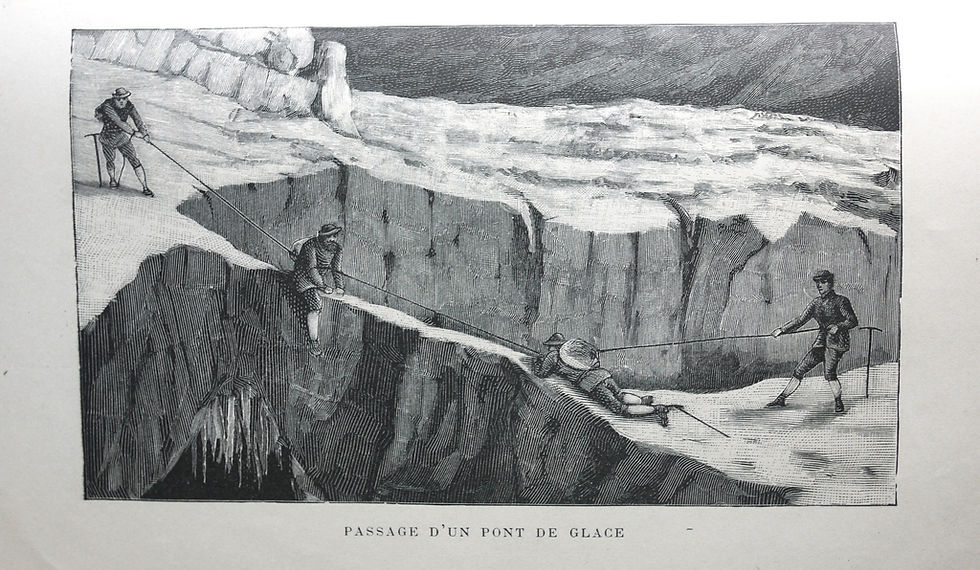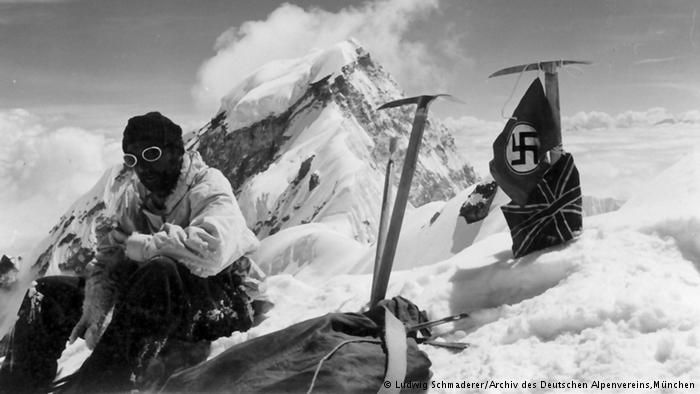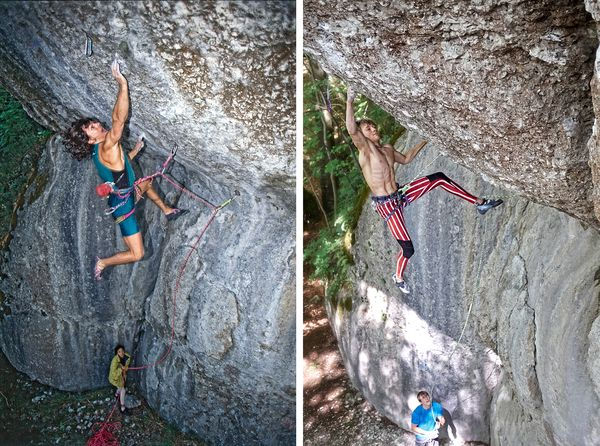What Happened to Climbing Mountains for Countries?
- Addison Eady
- Apr 7, 2016
- 3 min read

Sports and nationalism are two subjects that although very different have found themselves surprisingly intertwined, ranging from the concept of national sports all the way to the intense media attention the Olympics receives once every four years. Mountain climbing has been one sport that was once at the very center of national accomplishments, but this nationalistic idolization of ascending peaks has seen a sharp decrease in importance ever since the attainment of the summit of mt Everest, so what happened?
Historically many cultures harboured fear of the mountains due to their perceived proximity to the heavens and gods, it wasn't until the Enlightenment period that the European Aristocracy really under took the endeavor enough for advancements in techniques and equipment to be developed that allowed people to set their sights on larger mountains.

With the rise of 19th century Imperialism competition among nations grew seeking to out do each other and the mountains were the perfect place to show that your nation was able to overcome any challenge presented to it. With further advances in techniques and equipment the battle ground of mountaineering shifted to the Himalayas and the 8000 meter peaks began to fall. This was the perfect example of the realist and imperialist attitudes that had nations involved in state-centric conquer-ship, clearly shown by the practice of placing a countries flag on the summit of peaks that had been 'claimed'.
The nationalistic value of mountaineering further increased during the second world war, as the war effort for the axis powers began to turn grim, the Italians and Germans who had always excelled in climbing due to their proximity to the Alps, began attempting to conquer technically difficult peaks back home, and large high altitude mountains far away in order to show the people of the regimes that they were indeed 'still on top'.

With the end of the war and the growth of Neoliberalsim and cooperation among the international community the need to out do one another in the international realm of mountain climbing faded, but was not gone all together. By this point in time technological advancements primarily the nylon-kernmantle rope allowed for extremely technical movements to be performed on vertical to overhanging rock. Sport climbing developed in France and the Americans quickly adopted and excelled at this practice of technical rock climbing.

The constant pushing of the boundaries between the Euros and the Americans allowed for the birth of the International Federation of Sport Climbing and the world cup circuit which now under the pretense of Neoliberal cooperation and competition allowed for nationalistic climbing to emerge once again as each athlete represents a part of a national team. Through this legitimization as a sport rather than a counter culture activity masses flocked to climbing as an activity allowing for massive research and development of equipment. This paired with advances in technique allowed for a development of Ice and mixed climbing, which allowed for a return to previously un-climbed faces of mountains thought once too difficult to ascend.

In the current day there are extremely talented individuals that train year round on rock, ice and in the alpine, making impressive ascents and pushing the boundaries of what is possible in the mountains, many of them climb as a partnership with other alpinists, even those who are part of other nations. It is common for many countries to have an alpine club that offers funding to these athletes, and therefore inexplicably ties their ascents to nationalistic ideas, however the cycle from competitive conquer to mutual cooperation and success outlines the transitions from 19th and 20th century realism to the 21 century era of NeoLiberalism.


















Comments